Podcast: Play in new window | Download
Subscribe: RSS
An Icon of Global Fusion
Paul Winter turned 70 last Monday, on August 31.
You can hear a podcast of this interview, with Paul Winter’s music, here.
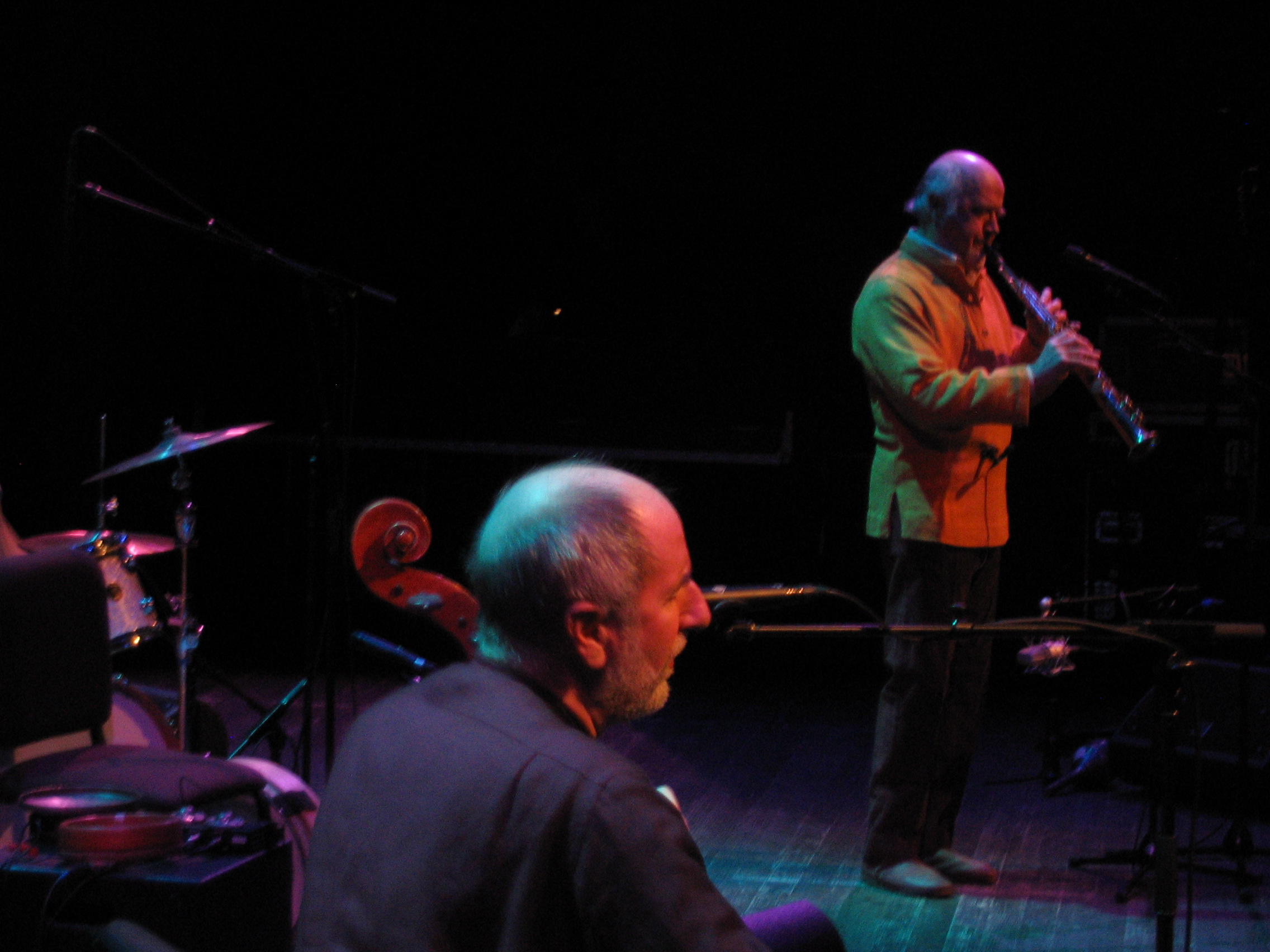 It’s easy to underestimate Paul Winter‘s impact on contemporary music, a mistake I suspect I’ve made myself at times. After dozens of albums over nearly 5 decades, four of them with variations on his group, the Paul Winter Consort, you can take him for granted. I’ve been following Winter since my college roommate, Mitch Stern, turned me on to Icarus, Winter’s 1972 album featuring members of the group Oregon along with production from George Martin. Yes, that George Martin. I first interviewed Paul, along with Consort cellist Eugene Friesen and keyboardist Paul Halley, at a hotel room in Exton, PA, where they had a gig that night. I’d talk with Paul several more times over the years, including a couple of treks to his farm in western Connecticut. Winter has also played on the show six times. He brought the Grand Canyon to our living room when he played music from Canyon Lullaby and we went to the Cathedral of St. John the Divine to record him twice.
It’s easy to underestimate Paul Winter‘s impact on contemporary music, a mistake I suspect I’ve made myself at times. After dozens of albums over nearly 5 decades, four of them with variations on his group, the Paul Winter Consort, you can take him for granted. I’ve been following Winter since my college roommate, Mitch Stern, turned me on to Icarus, Winter’s 1972 album featuring members of the group Oregon along with production from George Martin. Yes, that George Martin. I first interviewed Paul, along with Consort cellist Eugene Friesen and keyboardist Paul Halley, at a hotel room in Exton, PA, where they had a gig that night. I’d talk with Paul several more times over the years, including a couple of treks to his farm in western Connecticut. Winter has also played on the show six times. He brought the Grand Canyon to our living room when he played music from Canyon Lullaby and we went to the Cathedral of St. John the Divine to record him twice.
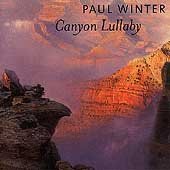 In that time, I’ve seen Paul Winter continue to grow as a musician and music conceptualist, constantly placing his soprano and band in new contexts and challenging situations, whether it’s negotiating the Colorado River through the Grand Canyon, or negotiating the idiosyncrasies and supralingua melodies of Arto Tuncboyacian. He can occasionally be overly sweet and his bossa nova tendencies have never spoken to me, but he always brings an exploratory mind and melodic heart to his work.
In that time, I’ve seen Paul Winter continue to grow as a musician and music conceptualist, constantly placing his soprano and band in new contexts and challenging situations, whether it’s negotiating the Colorado River through the Grand Canyon, or negotiating the idiosyncrasies and supralingua melodies of Arto Tuncboyacian. He can occasionally be overly sweet and his bossa nova tendencies have never spoken to me, but he always brings an exploratory mind and melodic heart to his work.
Look at Windham Hill, ECM jazz, and world music in general, and you can find Paul Winter woven around their roots and deep in their DNA.
Happy Birthday Paul. Here’s our tribute to Paul Winter, drawn together from about a dozen Echoes features over the years.
Paul Winter has played in concert halls, cathedrals and canyons, espousing his message of ecological preservation and world chamber music for nearly thirty years with his Paul Winter Consort. Since his Callings album, he’s been mixing in environmental sounds with his classical jazz, chamber world music sound.
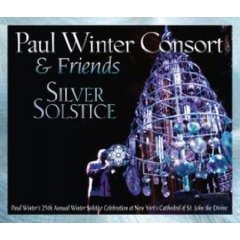 Paul Winter doesn’t just make recordings with environmental sounds. He lives amongst the trees and birds on 120 acres of rustic western Connecticut farmland with rolling hills, brooks, rivers and meadows. And as if the sound of nature wasn’t enough, rough hewn instruments dot the landscape, including tubular bells and xylophone bridges.
Paul Winter doesn’t just make recordings with environmental sounds. He lives amongst the trees and birds on 120 acres of rustic western Connecticut farmland with rolling hills, brooks, rivers and meadows. And as if the sound of nature wasn’t enough, rough hewn instruments dot the landscape, including tubular bells and xylophone bridges.
Paul Winter has been recording for nearly five decades, four of them with variations on his Paul Winter Consort group, an ensemble that has both embraced and launched many of the major musicians in world fusion. Cellists Eugene Friesen and David Darling, percussionists Glen Velez and Jamie Hadad, Irish singer Noirin Ni Rian and jazz guitarist Ralph Towner are only a few of the people to pass through the Consort.
David Darling: Paul is a wonderful human being. His group, too, you know is like in some respects like getting a doctorate in ethnic music if you want to treat it that way. I mean because in those early years, so many different people played with the band, I had such a learning experience.
In the sounds of the Paul Winter Consort, you can hear music from around the world with sitars, Middle Eastern percussion,
Russian singers, whales and wolves. But Paul Winter, who began his career as a jazz saxophonist in the 1960s, says his sources are closer to home.
Paul Winter: America (laughter). This is the land of coming together in so many ways. I think of America as a big garden in which all kinds of things are allowed to grow or encouraged to grow. The essence I think of an earth music like jazz is everything and everybody is welcome.
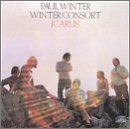 Paul Winter began the Consort in mid-1960s, but its signature sound came together a few years later when musicians from the group called Oregon joined up. Oregon guitarist Ralph Towner, who wrote “Icarus,” one of the hallmark Consort compositions, recalls the early sound.
Paul Winter began the Consort in mid-1960s, but its signature sound came together a few years later when musicians from the group called Oregon joined up. Oregon guitarist Ralph Towner, who wrote “Icarus,” one of the hallmark Consort compositions, recalls the early sound.
Ralph Towner: When we joined Paul Winter he was playing everything from Elizabethan music to Brazilian music to adaptations of baroque music and some adaptations of Bartok. So it was kind of a collection, and it was not a style at the time.
Oregon bassist Glenn Moore: Paul should be credited. He’s quite wonderful. It was an inspiring circumstance for us to see that instrumental could have a state of the art sound system, Neumann microphones and an audience.
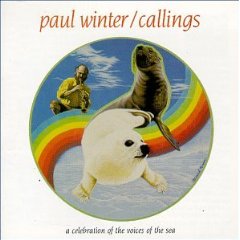 Paul Winter didn’t just hear the sound of world music, he heard the sound of the world and incorporated that into his ensemble. On his 1980 album, Callings, Winter took the sounds of seals, whales, otters and other creatures and merged them into his music. He took the consort out on boats to play with the whales.
Paul Winter didn’t just hear the sound of world music, he heard the sound of the world and incorporated that into his ensemble. On his 1980 album, Callings, Winter took the sounds of seals, whales, otters and other creatures and merged them into his music. He took the consort out on boats to play with the whales.
Paul Winter: When I heard the humpback whale for the first time, it was the same kind of rush that I got when I first heard some of the great jazz players.
Paul Winter has also taken his entire consort and some very bulky recording gear into the Grand Canyon. It was a dream he had nurtured since he’d stood at the canyon’s edge in 1963.
Paul Winter: I remember sitting on the edge of the south rim and playing my horn just for fun and as I heard the sound just instantly disappear in the vast sea of air between me and the north rim, 13 miles across, I remember wondering if there weren’t some amazing echoes if one would take his horn down to the bottom of the canyon, a mile below where I was sitting and play.
Twenty-five years later he realized his vision on the album, Canyon.
 Paul winter gets a similar reverberation rush from his annual solstice concerts in the Cathedral of St. John the Divine in Manhattan.
Paul winter gets a similar reverberation rush from his annual solstice concerts in the Cathedral of St. John the Divine in Manhattan.
Paul Winter: Sound, wonderful sound. It’s the same reason people like to sing in the shower. The reverberation enhances your sound. More than that, being in a space like that really has an affect on you as a being. I’m not sure exactly what that is, but I think the great gothic architects knew that huge space and perhaps space proportion in the very, very specific way that gothic architecture is, would have an affect on people. It overcomes the cortical chatter and you are immediately swept into a space of awesomeness.
Paul Winter predated New Age music by more than a decade, but even though he was embraced by that audience, he often felt ambivalent about it.
Paul Winter: Newage rhymes with, you finish the sentence (laughter).
He had his own name for his music.
Paul Winter: Contemporary, contrapuntal, Connecticut country consort music.
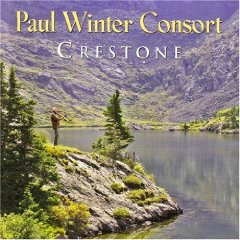 Yet he didn’t turn down the five New Age Grammy Awards he’s won over the years for albums like Spanish Angel, Celtic Solstice and 2007’s Crestone.
Yet he didn’t turn down the five New Age Grammy Awards he’s won over the years for albums like Spanish Angel, Celtic Solstice and 2007’s Crestone.
Whether playing in canyons or cathedrals, concert halls or his backyard, Paul Winter tries to make a music that engages his musicians and his audience in their hearts and souls, minds and conscience.
Paul Winter: For me, music implies something more than just the artistic combination of sounds. It has to do with a whole way of living, that’s musical, that’s harmonious, that’s resonant with the earth, with the lineage of our species and the lineage of the whole planet as part of the universe.
Paul Winter turned 70 on August 31. He continues touring and recording, living in western Connecticut with his wife and child.
John Diliberto ((( echoes )))
